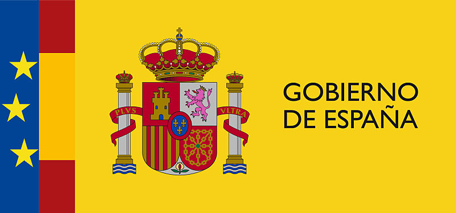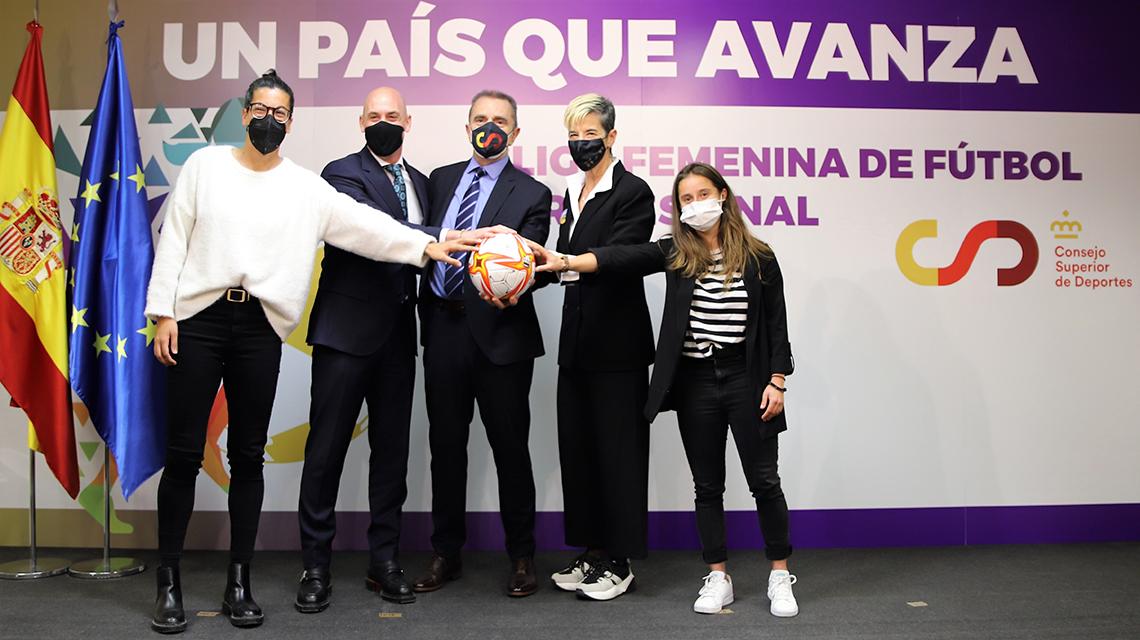A year of José Manuel Franco at the head of the Superior Sports Council
- The new Sports Law, the professionalization of women’s football and historical budgets have been three of the great milestones of the first year Franco as president of the CSD
- The main objectives for his second year as Secretary of State for Sport are to achieve political consensus on new sports regulations and the deployment of the Team Spain Elite program
Madrid, 30 March 2022.- Today marks the one-year anniversary of the appointment of José Manuel Franco as President of the Superior Sports Council (CSD) by the Council of Ministers. Twelve months marked by the gradual return to the normality of sports activity after COVID-19 and by the promotion of the renewal of the Spanish sports sector, through both an important economic injection and the articulation of a new regulatory framework.
“My objectives from day one have been clear: to use sports activity as a lever for change towards a more cohesive, more egalitarian and more sustainable economic model and society,” says Franco. And, to achieve this, as he stressed a year ago in his inauguration, “we have always relied on dialogue, constructive debate and the collaboration of all sectors, from the Sports Federations to the Autonomous Communities, passing through many other public-private organizations that make up the great sports ecosystem of Spain”.
Historical budgets for the sport
One of the main milestones of Franco’s first year at the helm of the CSD has been the approval of record budgets for the sports sector. In particular, the amount earmarked for sport in the General State Budgets of 2022 is EUR 315 million, 25% more than the previous year. Of this figure, 107 million come from the Recovery, Transformation and Resilience Plan, of which almost one third will be entirely destined to the development of sports policies of inclusion, equality and social cohesion.
As the Secretary of State for Sport states, this is “the biggest investment in the sports field in the last thirty years, a historic milestone to face the renewal and transformation of our sports model, and a firm commitment by the Government to sport as an economic and social engine”.
The budgetary increase has also affected the Sports Federations, to which the CSD is going to allocate in 2022 almost 57 million euros (three more than last year); the Spanish Olympic Committee, which has seen its subsidies increased by more than 3 million; and the paralympic sport, whose heading has tripled.
In addition to attending the Olympic and Paralympic Games in Tokyo last summer, in recent months José Manuel Franco has announced the implementation of a new support plan for his athletes: the Team Spain Elite program. Endowed with approximately 48 million euros -16 million per year until the next Games-, it will be aimed at the preparation of those and those athletes who, based always on technical criteria, have more options to achieve a medal, in a coordinated way between the CSD, the Federations and the COE.
Through this project, Franco hopes to “improve at the Paris 2024 Olympic Games the results obtained at the Barcelona 92, in the Olympic case, and continue to be a world power of the first order in the paralympic field”.
300 million euros to modernise the sport
During Franco’s first year as president of the CSD, the funds of the Recovery, Transformation and Resilience Plan have also been approved and started to be executed, which include a chapter dedicated exclusively to the sports sector and an economic endowment of 300 million euros.
“Spain is the only country in the European Union that has a specific section of European funds for the transformation and promotion of sport,” recalls Franco. Specifically, the Sport project of the European funds includes three specific investment plans: the Ecological Transition Plan for sports facilities, which has a total budget of 146 million over the next three years; the Digitisation Plan for the sports sector, endowed with 75.6 million; and the Social Plan for Sport, with 77.9 million.
In addition to being approved, during this last year almost 30% of these 300 million have already been territorialized between the Autonomous Communities. Specifically, EUR 84 million has been distributed aimed both at the modernisation of sports facilities (CAR and regional centres) and for the digitisation of sport and the promotion of physical activity.
Law of Sport
Apart from the economic boost, during the first year of Franco’s mandate, the CSD and the Government have completed the elaboration of a new legal framework for sport and physical activity, the central focus of which is the draft of the new Sports Law.
A rule that, as Franco explains, arises from the “need to update the sports model generated with the 1990 Law, to reform the organisational model of competitions and to face new challenges such as equality, inclusion and sustainable growth”.
In this first year, the Congress of Deputies has also unanimously approved the Organic Law of the fight against Doping, which adapts the Spanish anti-doping legislation to the new World Anti-Doping Code; and the objective has been the drafting of a Law on Sports Professions, to provide greater security and stability to athletes.
In this sense, one of the objectives and challenges of the Secretary of State for his second year of mandate is to achieve a broad political consensus on the new sports regulations, especially with regard to the Sports Law, currently in parliamentary procedure.
Promotion of women’s sport
After the approval last June of the professionalization of women’s football, just two weeks ago the Steering Committee of the CSD approved the statutes constituting the first professional women’s football league in Spain. A “significant milestone that crystallises a real country project”, as Franco points out, and that “it pays off a debt to women sportsmen, who have long deserved this recognition”.
For its implementation, the CSD has already called for support to clubs and Sports Limited Companies participating in the highest category of women’s football worth 16 million euros, in order to be able to undertake the structural improvements necessary for the competition.
Franco hopes that the professionalization of football will serve as a “locomotive to promote the rest of sports practiced by women and the promotion of equality in the sector”. A commitment to gender equality and diversity that the CSD is bringing together around the ‘Equals in Sport’ strategy, within the framework of which various awareness campaigns have already been carried out in recent months.




